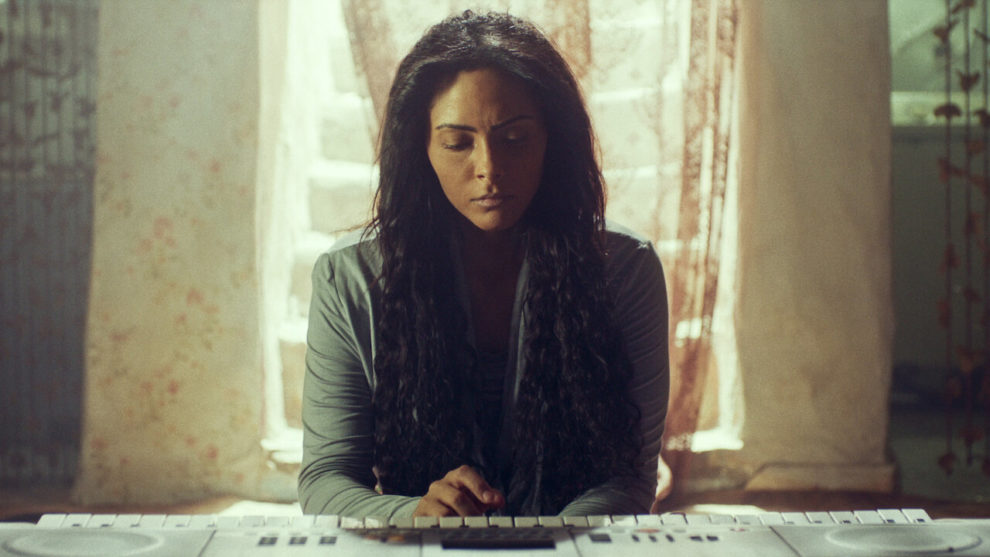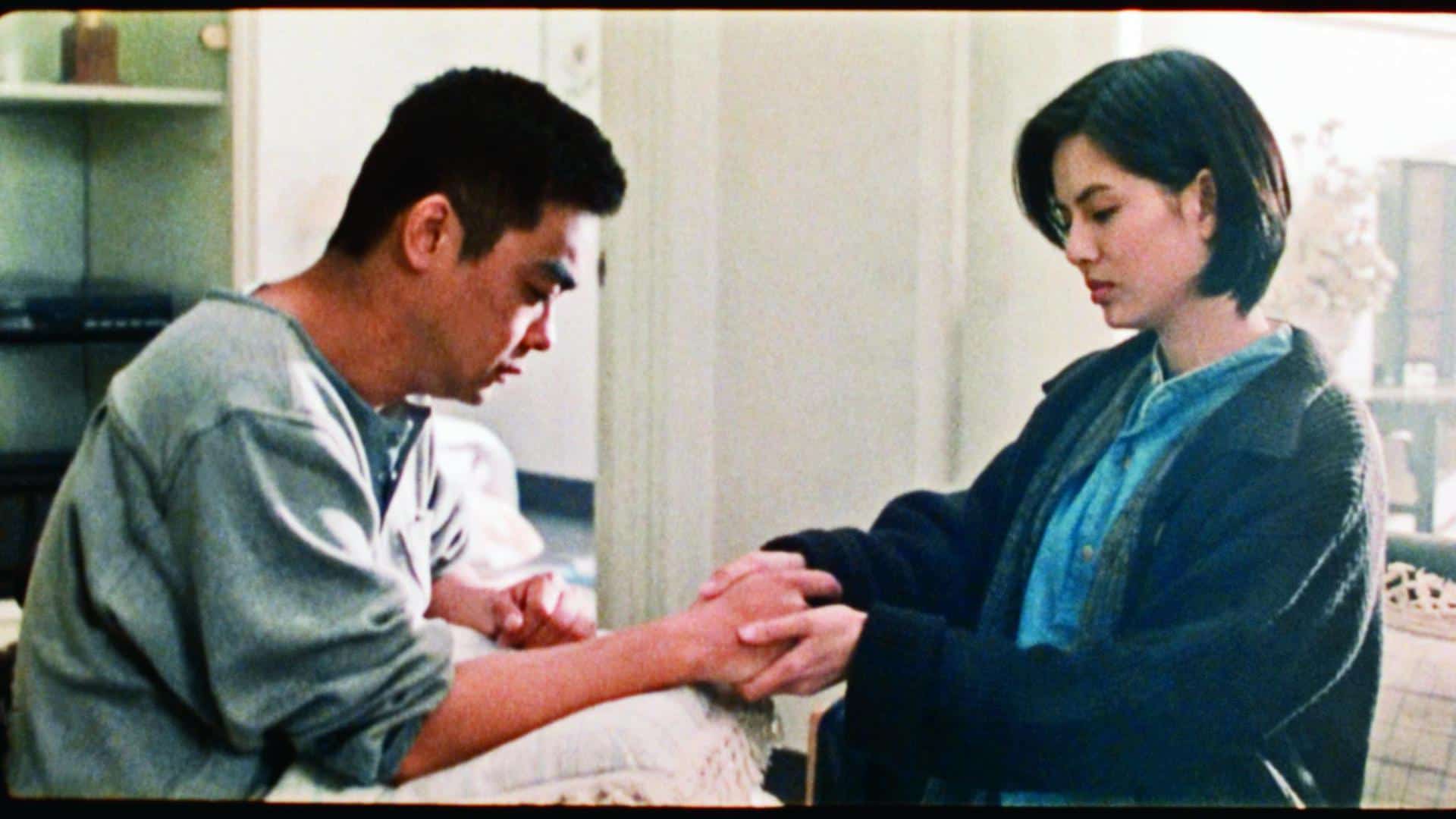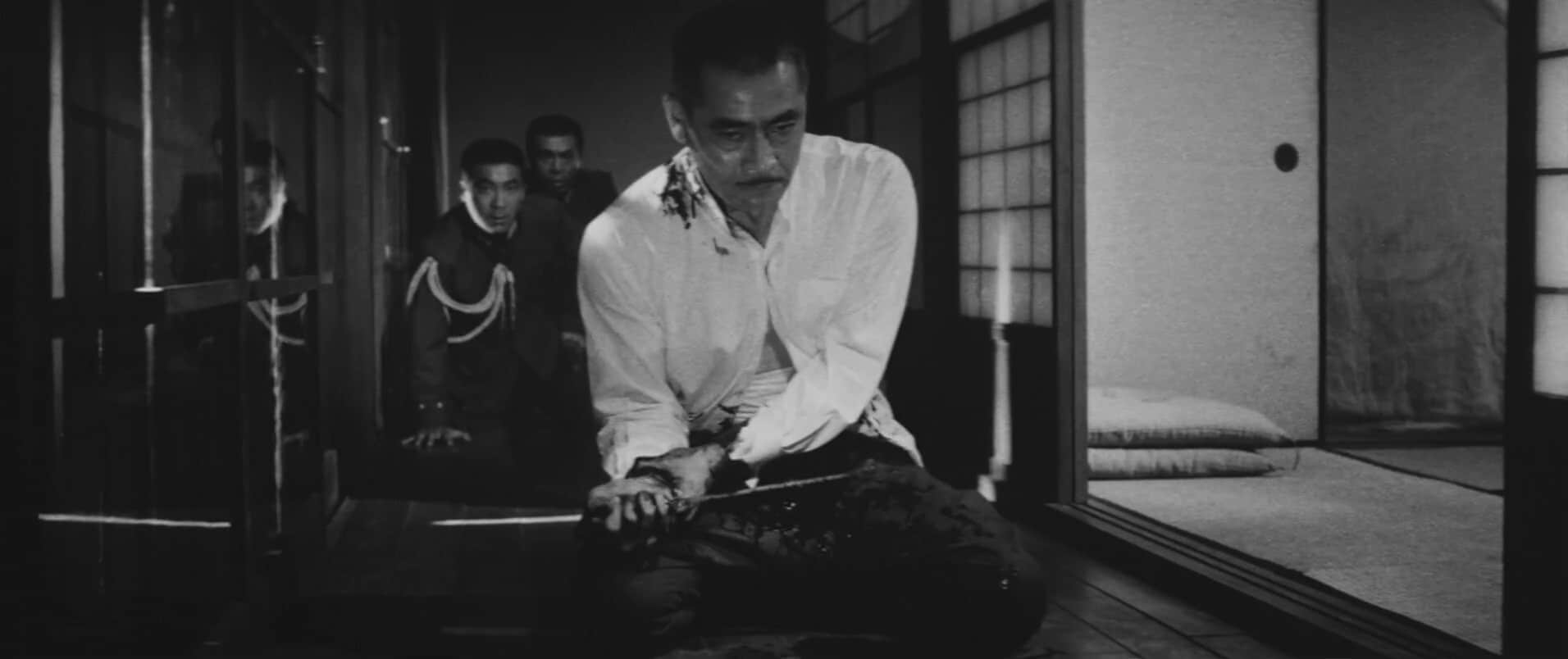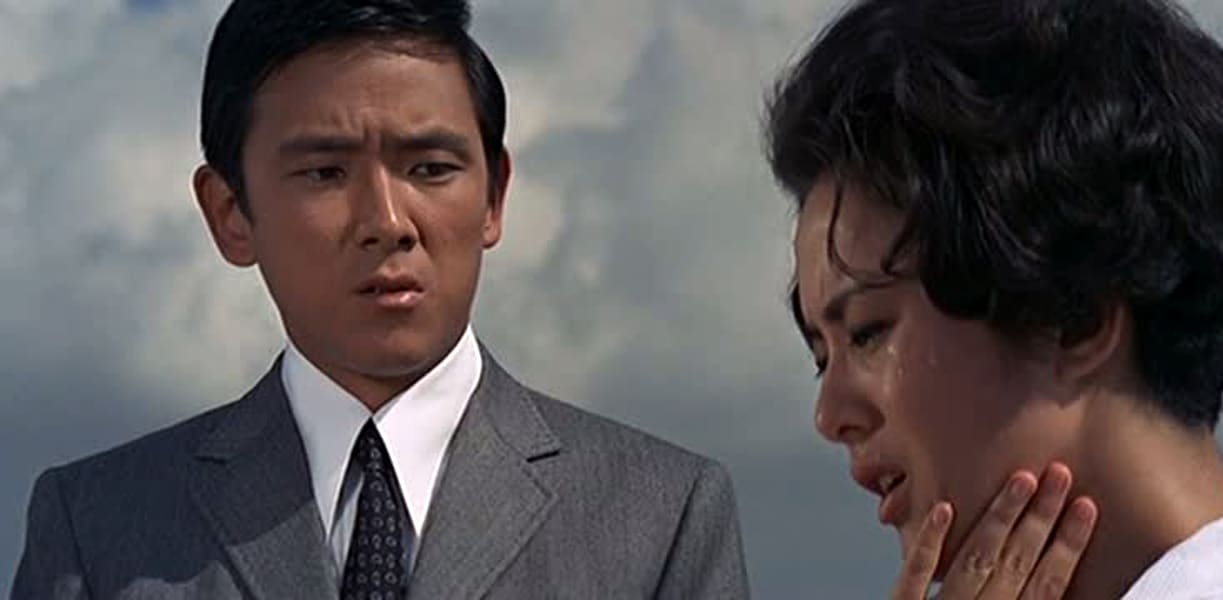by Joshua Polanski
Saudi Arabia's selection for the Best International Feature Film at the 94th Academy Awards and the first feature film centering on the Black-Saudi community of Riyadh, “The Tambour of Retribution” already has an impressive resume. Abdulaziz Alshlahei's second feature film also took home two awards at the 42nd Cairo International Film Festival: The Special Jury Award and Faisal Al Dokhy won Best Acting Performance Award for his performance as Daiel. All of this to say, “The Tambour of Retribution” is certainly worth your time.
Alshlahei's production can be described as a Romeo and Juliet style romance (or perhaps, the classical story of Layla and Majnun fits the film's Islamic world better). The potential couple finds themselves unable to marry because of their career paths, which are culturally incompatible in the Kingdom of the late 1990s. Daiel might follow in his father's footsteps to be a “swordsman,” a euphemism for state executioner; Shama's (Adwa Aldkhil) dream is to be a wedding designer, though her mother is a singer.
The couple's social incompatibility is not the only roadblock to their romance: Shama also has a unique distaste for state-executioners. Her cousin and former finance, Suror (Shabib Alkhaleefa), has been sentenced to death for murder. Shama and her poor family spend the bulk of the movie struggling to raise the “blood money” that would give Suror freedom. His sentencing and the date of his execution bookend the drama, ensuring viewers do not forget the stakes of this star-crossed romance.
The core ethic of the film seems best encapsulated in a line spoken by Daiel's uncle, the main traditionalist preventing the marriage: to paraphrase, “you can either choose love or marriage.” A broader interpretation of this, the choice between love and tradition, is a crossroads nearly every major character comes to. Importantly, the filmmakers do not vilify the choice of one path or the other. The choice is often difficult and sometimes contradictory, something Shama, in particular, comes to understand.
The movie relies heavily on the performance of the two leads, Adwa Aldkhil and Faisal Al Dokhy. They use their eyes more than words or bodily postures to communicate their emotions. Alshlahei and cinematographer Houssam Habib give more attention to the eyes of the characters than a typical production. This is helpful, especially for the women in the film, who we often see veiled. Shama is an exception to this, since we exclusively see her in settings where being unveiled is the social norm—this directorial decision wisely provided Aldkhil with more creative potential than most of the other women in the film, while also building an emotionally suffocating space for Aldkhil's character, Shama. Al Dokhy may have won the CIF Best Acting Performance Award, but Aldkhil carries more of the emotional heavy lifting; after all, it's her Shama's cousin and former lover whose life is at stake. Daiel, by contrast, is a simpler character motivated only by his desire to marry Shama. His hesitancy to wield the sword doesn't even seem to stem from any moral convictions or trauma but out of his infatuation.
Saudi Arabia did not open the first theatres in the country until 2018. With mainstream Saudi cinema now possible and rising excrementally, “The Tambour of Retribution,” a technically sound picture with two great performances that focuses on the struggles of a unique Black-Saudi community, gives me tremendous hope and excitement for its future.
















